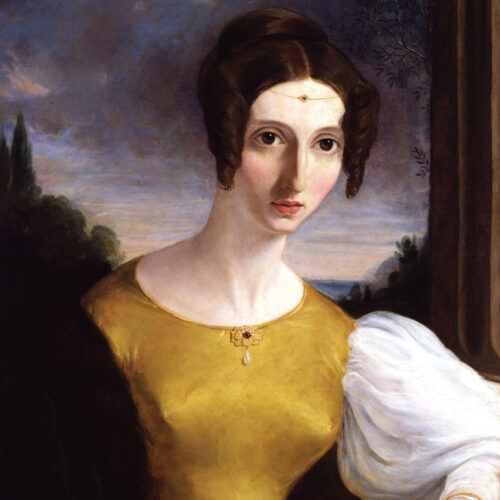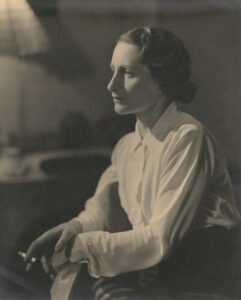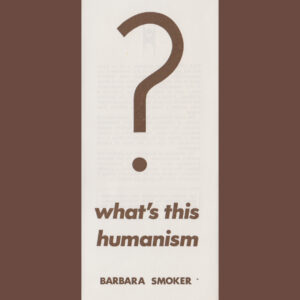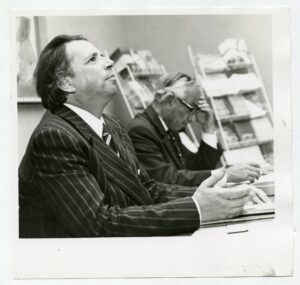

That an institution or a practice is customary is no presumption of its goodness.
Harriet Taylor Mill
Harriet Taylor Mill was a writer, philosopher, and women’s rights advocate, described by John Stuart Mill as ‘the most admirable person [he] had ever known.’ In her life, works, and ideas, she was a consummate humanist: a proponent of compassion, reason, and a sense of justice drawn from the two. Long overshadowed in the opinions of historians by her husband and collaborator John Stuart Mill, recent years have seen a reevaluation of her significant influence and personal contributions, including as active co-author in a number of Mill’s major works. Of the pieces of which she was sole author, common themes are women’s rights, and the nature and influence of religion.
Harriet Taylor Mill was born Harriet Hardy on 10 October 1807, the daughter of surgeon Thomas Hardy and Harriet (née Hurst). One of seven children, Harriet was educated at home, before marrying John Taylor in 1826, at the age of eighteen. The couple went on to have three children: Herbert, Algernon, and Helen.
She and John Stuart Mill were introduced to one another in 1830 by William Johnson Fox, who was the leader of South Place (now Conway Hall Ethical Society), which Harriet and John attended. Fox was the predecessor of Moncure Conway, and the real beginning of an opening up of that ‘congregation’ to a more humanist belief system. Taylor herself was very much a part of, and influenced by, the circle at South Place (now Conway Hall), which was then Unitarian but moving ever closer to humanism. There, she was close friends with another woman of genius and religious unorthodoxy, musician and composer Eliza Flower.
The connection between Taylor and Mill was immediate and intense and, highly unusually for the time, Harriet Taylor began to live separately from her husband during the 1830s, maintaining a close intellectual relationship with John Stuart Mill. Harriet returned home to nurse her husband in 1849, and John Taylor died of cancer two months later. Harriet Taylor and John Stuart Mill were married in 1851, after two decades of friendship and close correspondence.
Taylor Mill’s most substantial, and attributable, essay appeared in the Westminster Review in July 1851 under John Stuart Mill’s name. ‘The Enfranchisement of Women’ argued for absolute equality between the sexes as a prerequisite for society’s progress. Women should be given, the essay stated, ‘equality in all rights, political, civil, and social, with the male citizens of the community’.
Harriet Taylor Mill died in France in 1858, where the couple had travelled shortly after John Stuart Mill’s retirement. Mill’s essay On Liberty, published shortly after her death, was dedicated to Harriet Taylor Mill: ‘the friend and wife whose exalted sense of truth and right was my strongest incitement.’ It was through the words of John Stuart Mill that his wife’s reputation was established and protected, not least in his repeated acknowledgements of her significant role in his own writings. Of On Liberty he wrote:
The whole mode of thinking of which the book was the expression, was emphatically hers…. The “Liberty” is likely to survive longer than anything else that I have written (with the possible exception of the “Logic”), because the conjunction of her mind with mine has rendered it a kind of philosophic text-book of a single truth.
In his autobiography, John Stuart Mill described his wife as ‘a woman of deep and strong feeling, of penetrating and intuitive intelligence, and of an eminently meditative and poetic nature.’ Significantly, he wrote that her desire to live well and aid others arose entirely from herself, rather than from any set of supernatural rules or external authorities:
Her unselfishness was not that of a taught system of duties, but of a heart which thoroughly identified itself with the feelings of others, and often went to excess in consideration for them by imaginatively investing their feelings with the intensity of its own.
John Stuart Mill paints Harriet as very much a humanist:
In her, complete emancipation from every kind of superstition (including that which attributes a pretended perfection to the order of nature and the universe), and an earnest protest against many things which are still part of the established constitution of society, resulted not from the hard intellect, but from strength of noble and elevated feeling, and co-existed with a highly reverential nature.
Harriet Taylor Mill’s daughter Helen Taylor was herself a progressive and compassionate reformer, and an inheritor of her mother’s humanism. Taylor herself was closely associated with the ethical societies (not yet established during Taylor Mill’s lifetime), noting her particular admiration for educationist and humanist F.J. Gould.
The proper sphere for all human beings is the largest and highest which they are able to attain to. What this is, cannot be ascertained without complete liberty of choice.
‘The Enfranchisement of Women’, 1851
The influence of Harriet Taylor Mill is clearly evident in the works of her husband, in particular 1869’s The Subjugation of Women, as well as in the active suffragism of both Mill and his stepdaughter Helen Taylor. Increasingly, though, her wider influence on feminist thought and social reform is being acknowledged and celebrated. So too is the humanist philosophy which underpinned Taylor Mill’s life and work.

I think that one of the most hopeful signs at the present day, and one for which this Movement can […]

The principles of humanism are positive and exacting commitments. People do not become Humanists merely on rejecting supernatural beliefs. But […]

I don’t understand people panicking about death. It’s inevitable. I’m an atheist; you’d think it would make it worse, but […]

At this nervous moment… when we have uncertainties about almost everything, it’s particularly necessary that we pool our determination, so […]